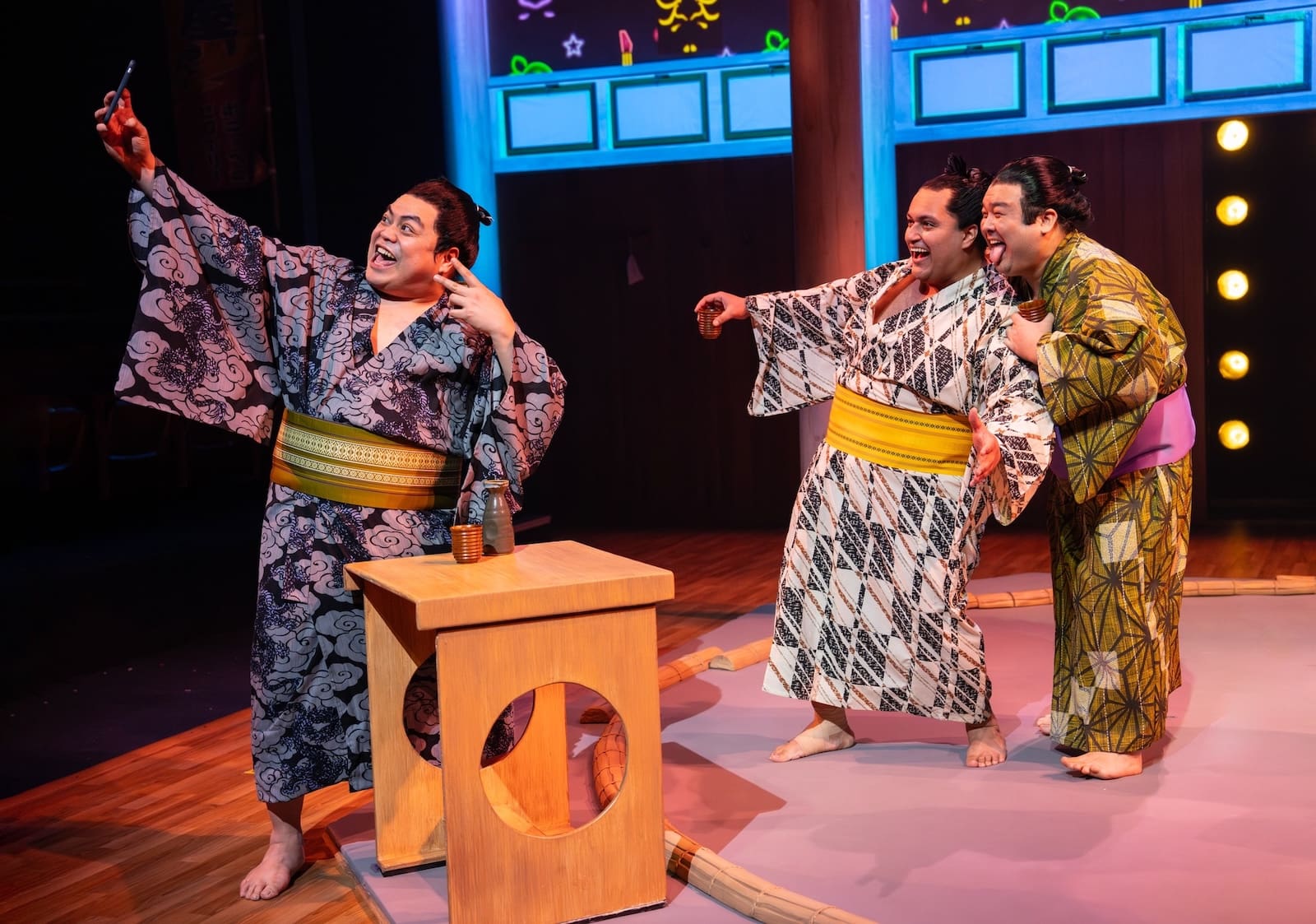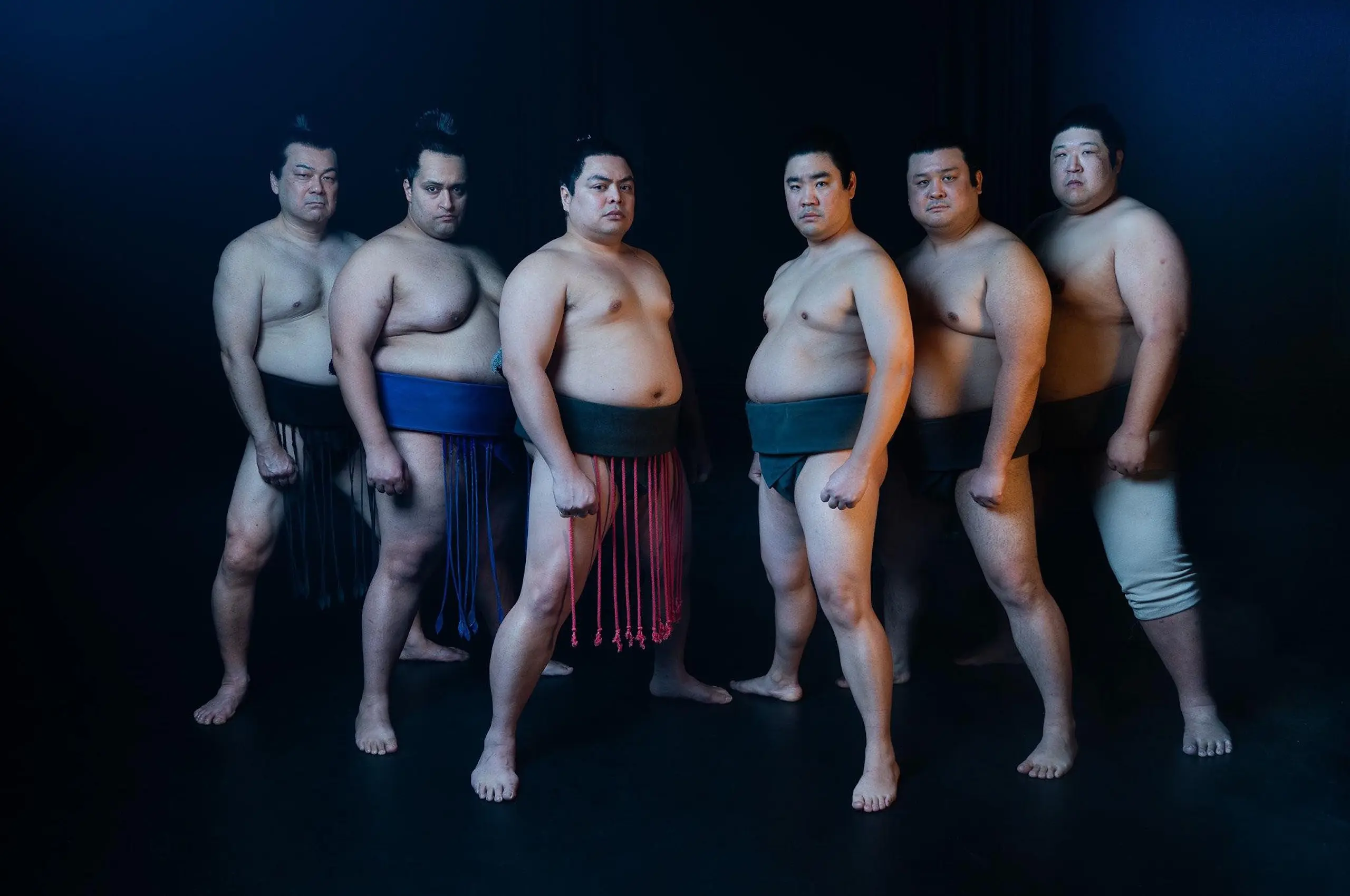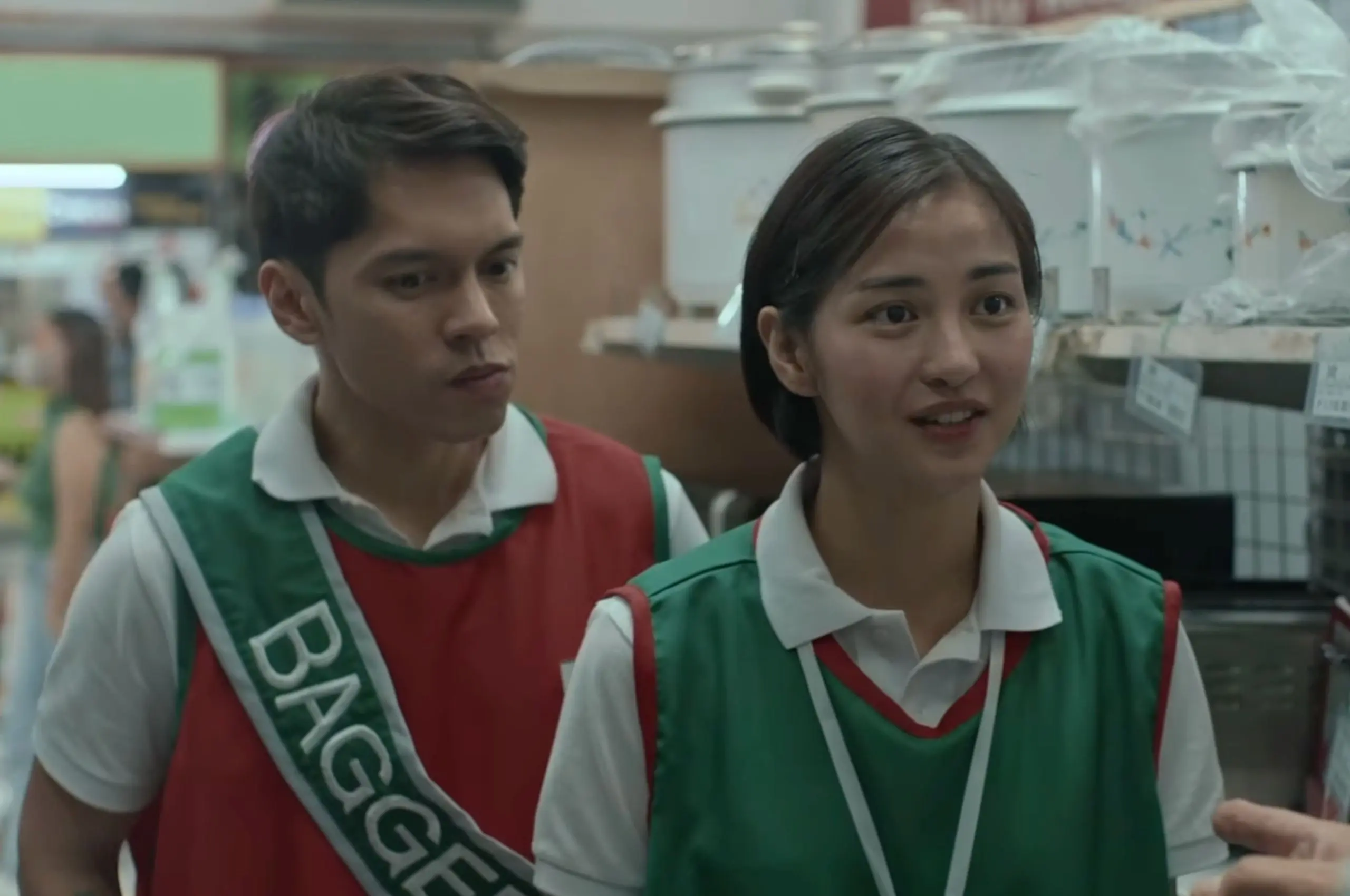The fifteen years Red Concepción has spent leaving his mark on Philippine theater saw the theater actor take on vastly different roles. From portraying the hot-headed drag queen Adam in Priscilla, Queen of the Desert (a performance that earned him both the Aliw and Gawad Buhay Awards) to the horse-obsessed and sometimes-nude Alan Strang in Equus, Concepción has displayed an unbeatable versatility.
After joining the Miss Saigon U.K. and U.S. tours in 2017 as the Engineer and making history as the first Filipino to play Amos Hart in the Broadway musical Chicago, Concepción finds himself taking on yet another demanding role: The brash sumo wrestler Fumio in the Off Broadway play Sumo.
However, the actor isn’t one to toot his own horn, being more interested in sharing his extensive knowledge of theater lore than talking about himself.

“Let me tell you a story,” Concepción tells Rolling Stone Philippines. “On my very last day in Chicago, the stage company gave me a sumo wrestler figurine that used to belong to Chita Rivera, who was the original Velma in Chicago. The Chita Rivera! Apparently, Chita Rivera was a huge sumo fan, so when she went to Tokyo, I guess she went to see a fight and the sumo wrestlers gifted her with this. And now I have it.”
When asked if the figurine could be a divine sign that he’s destined for greater things, Concepción humbly brushes off the idea. “It’s just a weird convergence of both worlds. On the first day of rehearsals for Sumo, I brought it to our rehearsal room so that we’d have the gods of sumo and the goddesses of theater watch over us. I don’t think it’s meant to be anything more than that.”
Taking Up Space Onstage
The world of sumo wrestling is one few audiences have experienced firsthand. Written by Lisa Sanaye Dring and directed by Ralph B. Peña, Sumo tells the story of 18-year-old Akio, who enters a sumo training facility (or heya) to begin his journey as a wrestler. Amid the rigorous training, Akio forms relationships with his fellow wrestlers, including the reserved and disciplined Ren and the fiery, impulsive Fumio.
“There was a lot of care put into telling the story half in words and half in movement,” says Concepción. “I remember Lisa saying that sumo wrestlers, or at least in the way she imagines them, mostly communicate through their bodies. They’re very physical people. So, sometimes there was this economy of words when we needed to tell the story through our bodies.”And because the play requires several fighting sequences, Concepción says he needed to undergo a lot of physical preparation since, in theater, there’s no trickery of the camera to fake any punches.
But perhaps the biggest adjustment Concepción had to make was performing nearly completely naked on stage. Clad only in a thin traditional loincloth (or mawashi), Concepción had to embrace the vulnerability of the role, learning to feel at ease with his physical form in front of the audience. “Personally, I’d done Equus years ago, which needed me to be fully naked,” says Concepción. “But that was maybe twenty years ago, and my body was very different then.”

“Especially for Filipinos, weight is such a big issue,” continues Concepción. “There is so much trauma built into our body image. But there’s something so empowering just to be out there in front of everyone in only a mawashi. It’s so revealing, but there’s something so beautiful about having so much heft, grace, and strength on stage. It’s so rare that we get a play that celebrates bigger bodies.”
Reflecting on the character of Fumio, Concepción recalls how much of a departure it was from his role in Chicago. “I only had a day or two to change gears,” he says. “I think it was January 5 when we wrapped up Chicago, and then it was January 7 when rehearsals for Sumo started. In Chicago, I played Amos Hart, who’s this very timid, small character. His whole deal is [that] he’s trying to make himself small. But with Fumio, he’s definitely brasher. He’s overcompensating for a lot, so he projects a lot. Maybe this is a spoiler, but Fumio’s kind of stuck in the middle. He’s on the verge of making it into the senior ranks as a wrestler, but he just can’t quite make it. He’s also got this clandestine relationship with Ren, the other wrestler in the heya, but he’s trying to keep it a secret. He can never be fully himself, so he’s always straddling these two worlds.”
Theater as Truth
With Sumo wrapping up its final week at the Public Theater in New York, Concepción is already looking ahead, reflecting on his journey and considering what’s next for his career. When asked what advice he’d offer to aspiring actors in the Philippines, the actor thinks for a moment to carefully consider the weight of his words.
“God, do I want to be poetic or practical?” Concepción laughs. After another pause, the actor finds what he wants to say. “I think we need to be authentic. As a Filipino living in a foreign country right now, and who’s telling stories that are outside of my own experience, I’m always wondering about what I bring onstage to these characters. But at the end of the day, these are all human stories. My point of view and, in fact, my Filipino-ness, are what make me different from any other actor out there.”
“Don’t negate your own story,” continues Concepción. “Look through everything you do with your own lens. At its core, theater is about truth. And what is your truth? That is what you bring to the show.”







